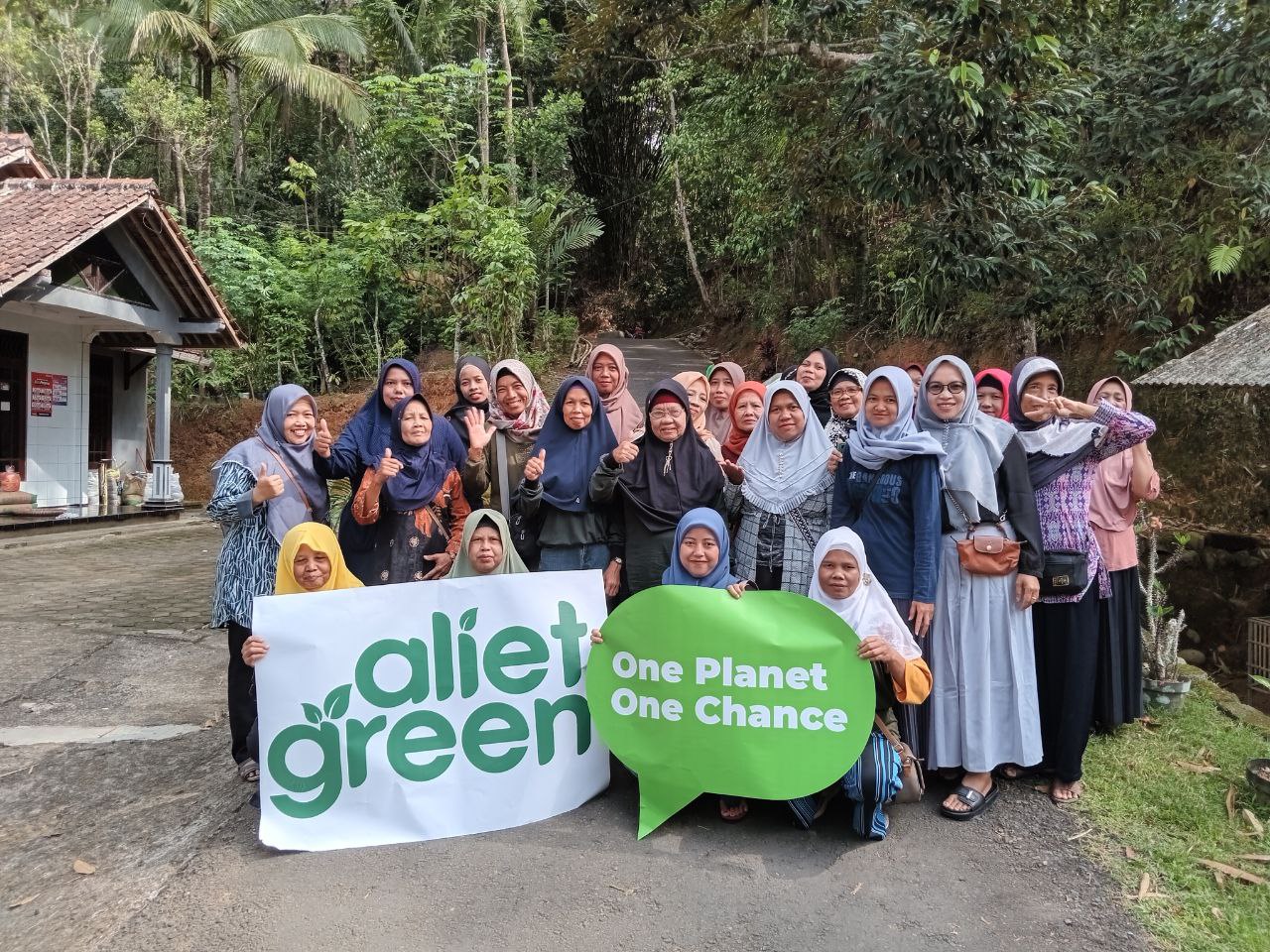Coconut Resilience: How Indonesia’s Farmers are Combating Climate Change
Organization: ALIET GREEN
2024 LOCAL ADAPTATION CHAMPIONS AWARD WINNER
In Indonesia’s Kulon Progo region, smallholder farmers are grappling with the devastating impacts of climate change. Extreme weather events, such as prolonged droughts and floods, have wreaked havoc on coconut sugar production, a key livelihood for many. With associated declining yields, climate change threatens not just crops, but the community’s food security and economic stability.
Local Leadership Paves the Way for Regenerative Farming
At the forefront of addressing these challenges is Aliet Green, a women-owned enterprise based in Yogyakarta, Indonesia. The enterprise is empowering local farmers in climate adaptive on-farm technologies that are cheap and easy to use. For example, the 3R (recharge-retain-reuse) water management system, and the introduction of dwarf coconut trees that are easier to harvest for women.
Under the leadership of Lastiana Yuliandari, Aliet Green is pioneering several solutions in regenerative organic agriculture. Their mission? To enhance the well-being of indigenous communities and to support the agroforestry initiatives of small family holdings, women and people with disabilities. So far, they have empowered over 1,500 smallholder farmers, 90% of whom are women, to adopt resilient farming practices that tackle climate change head-on.
"We are here to equip farmers with the tools and knowledge they need to adapt to an increasingly unpredictable climate. Our aim is to create a future where sustainable farming benefits both people and the planet," says Yuliandari.
The company’s holistic model, blending traditional farming practices with modern solutions, ensures farmers can sustainably increase their yields in the face of challenging climatic conditions.

Empowering Farmers Through Training and Fair Trade Practices
Beyond technology, Aliet Green has invested heavily in farmer education, placing community capacity building at the heart of the project. Since 2013, the company has trained farmers on soil and water conservation, financial literacy, and sustainable farm management. Aliet Green also buys raw materials from the 1500 smallholder farms that it supports, ensuring fair wages and offering a 10-20% premium for the organic fair trade produce.
"Empowering farmers, especially women and those with disabilities, has been our priority. By supporting their livelihoods and providing equal opportunities, we are fostering a more inclusive agricultural system," Yuliandari explains.
One of the standout features of Aliet Green’s strategy is their commitment to local leadership. The FairTrade Committee, made up of elected farmer representatives, oversees the distribution of FairTrade Premium Funds. These funds are reinvested into community projects such as infrastructure improvements, education grants, and capacity-building initiatives. This participatory approach ensures that farmers have a direct say in how resources are allocated, creating a strong sense of ownership and accountability.
A Global Model of Climate Resilience
Aliet Green’s impact extends far beyond the Kulon Progo region. The company has established itself as Indonesia’s leading fair-trade producer of regenerative organic coconut sugar, spices, and tropical fruits. By adopting climate-adaptive farming practices, the enterprise has helped safeguard over 500 hectares of agroforestry land. The results are tangible: higher yields, better income stability, and a model of farming that’s both sustainable and scalable.
Aliet Green’s achievements have earned international recognition, including awards from the UN Food System Summit and a Sustainable Foods Award. But for Yuliandari, the most significant impact is seen on the ground. "We are not just selling products; we are changing lives. Our farmers are more resilient today, both financially and environmentally. That’s the real measure of our success."